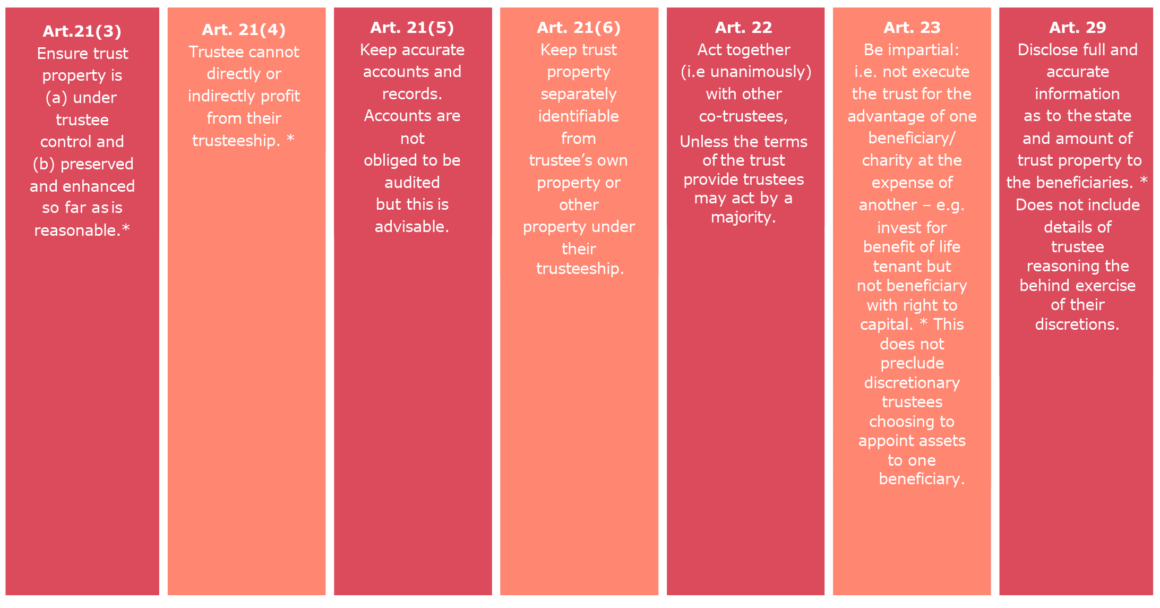GENERAL DUTIES SPECIFIED IN THE TRUSTS (JERSEY) LAW 1984
The relationship of trustees to beneficiaries is viewed as fiduciary, meaning there are certain equitable principles which prevent trustees from abusing their position; for example, they must always act in utmost good faith in the interests of the beneficiaries and are expected to act selflessly (e.g. they cannot make unauthorised personal gains) and with undivided loyalty (i.e. they should avoid conflicts of interest). Jersey law (article 21 of The Trusts (Jersey) Law 1984) requires trustees to act with due diligence as would a prudent person and to the best of the trustee’s ability and skill whilst observing the utmost good faith. It also adds various other duties (set out in articles 21 to 23 and article 29 of The Trusts (Jersey) Law 1984), although the trust instrument commonly amends and adds to these duties.
In addition, prior to accepting an appointment as a trustee, trustees should: acquaint themselves with the terms of the trust; check they will be properly appointed; inspect the trust instrument; review the history of the trust and its distributions; and ensure all property subject to the trust will be validly vested in their names.
* Subject to the terms of the trust and commonly excluded or amended by trust instrument, especially where
trustees are professional trustees










